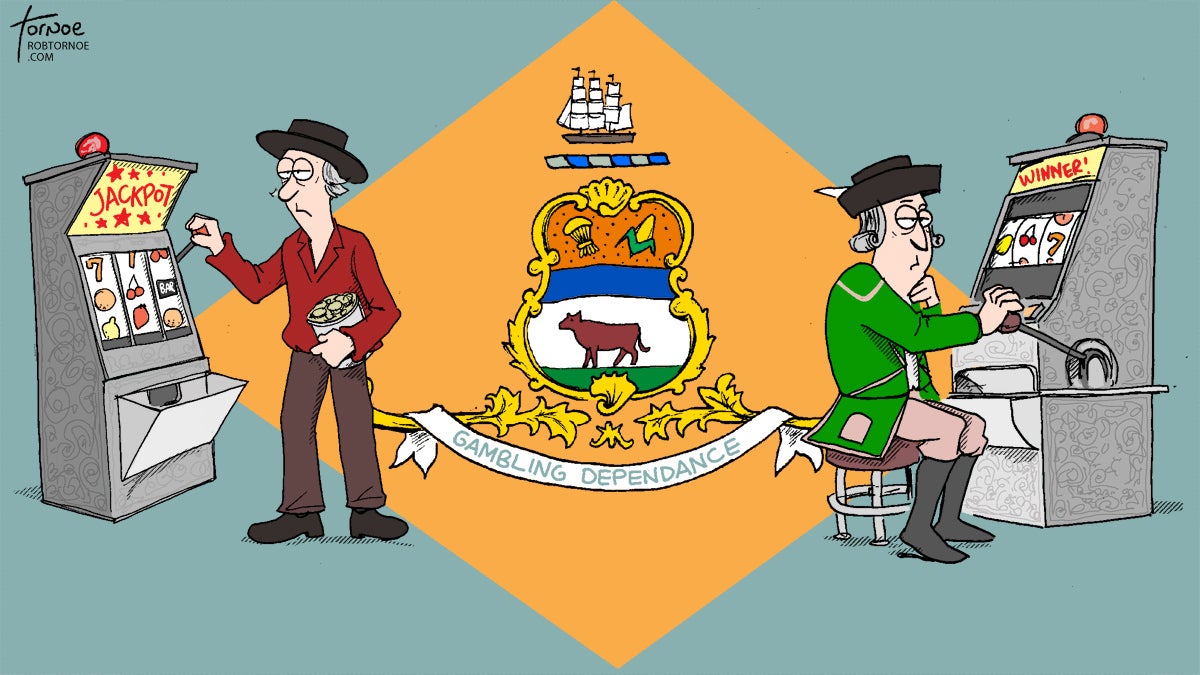Delaware Addicted to Gambling Revenues

Delaware Governor Jack Markell has put together a set of proposals to help fix Delaware’s aging infrastructure. Rob Tornoe offers a cartoon with his comments.
Here is Rob’s commentary.
Delaware Governor Jack Markell has put together a set of proposals to help fix Delaware’s aging infrastructure that seem to make a lot of sense.
Politicians on both sides seem to agree on them. The problem is they can’t agree on how to pay for them. Markell is trying to sell the unpopular approach of borrowing and a gas tax to pay for it.
One thing that hasn’t helped his budget is the decline of gaming revenue the state draws from its 3 casinos. Last year’s revenue was about $435million, the smallest in 13 years. Worse, it’s down nearly 20% from 2012’s total with Dover Downs barely eeking out a $13,000 profit (and that’s after being bailed out with money to modernize). In 2012 that number was $4.8 million. Ouch!
Online gambling isn’t much better. Despite boasting that gamblers waged about $3.8 million on the internet games through December 1st, the state’s take was a microscopic $253,000. Keep in mind the state’s revenue target is $5million, which at this rate would take more than 3 years to reach. Since the state collects 100% of the first $375million generated by online revenue, don’t count on it to save the 3 struggling casinos.
What makes the decline so painful in Delaware is our dependence on the revenue. Gambling revenue is the state’s fourth highest source of funding, accounting for 7% of the money in the state budget.
By comparison most states only get about 2% of their overall revenue from gambling.
What’s the solution? I don’t know, I’m only a cartoonist. Maybe a casino near the Christiana Mall or at the beach would draw customers. But those would certainly put either Dover Downs or Harrington out of business.
Maybe the state should lower its take to allow the casinos some breathing room, but then shouldn’t they be forced to use the money to invest in new amenities to attract more customers?
Plus, there’s the ethical question of whether the state should put itself in the dual role of promoting online gambling while operating as the addict’s support network. I always think back to the video game Sim City. Yes, casinos generated your town money, but you also needed to invest in education and police or your town would turn into a slum.
Let’s hope our leaders figure something out. As the state’s economic director, Alan Levin said recently, “There’s got to be a carrot and stick here in some way.”
Rob Tornoe is a cartoonist and WHYY contributor. You can follow him on twitter @RobTornoe.
WHYY is your source for fact-based, in-depth journalism and information. As a nonprofit organization, we rely on financial support from readers like you. Please give today.


